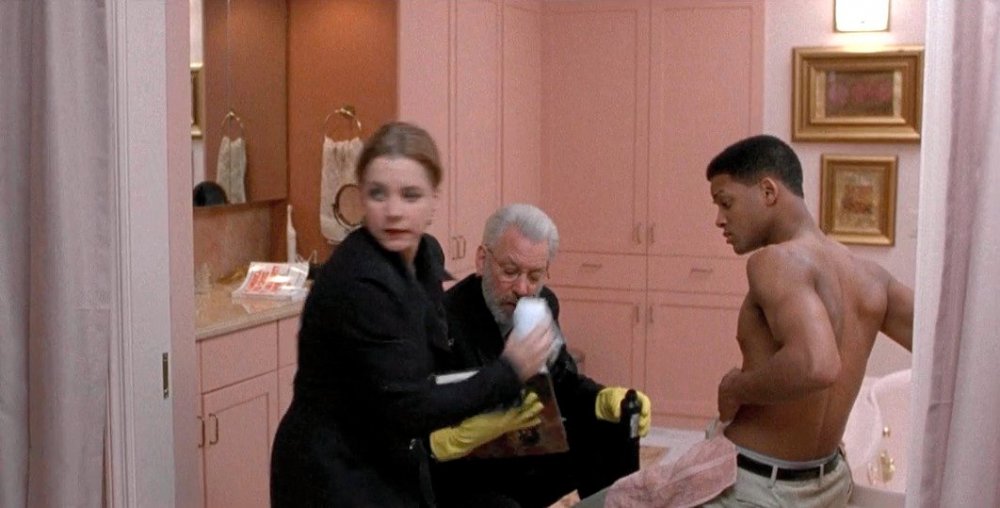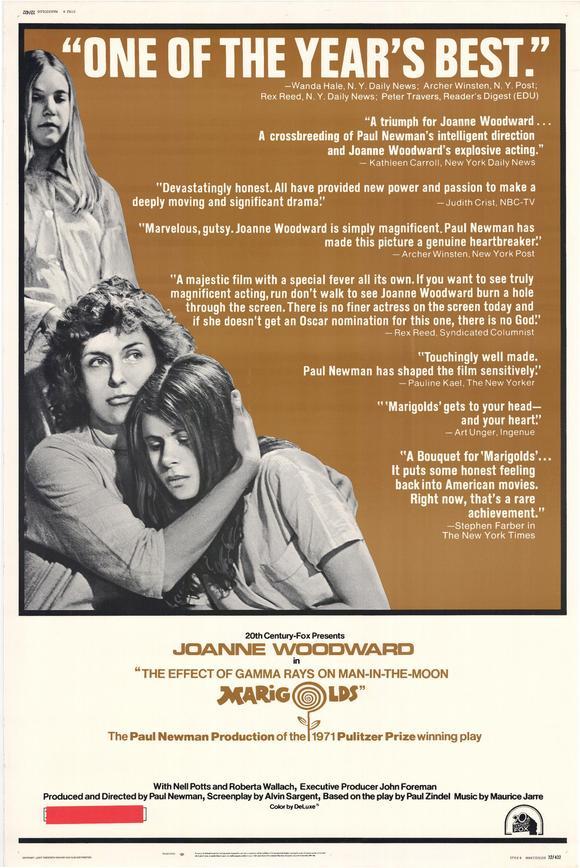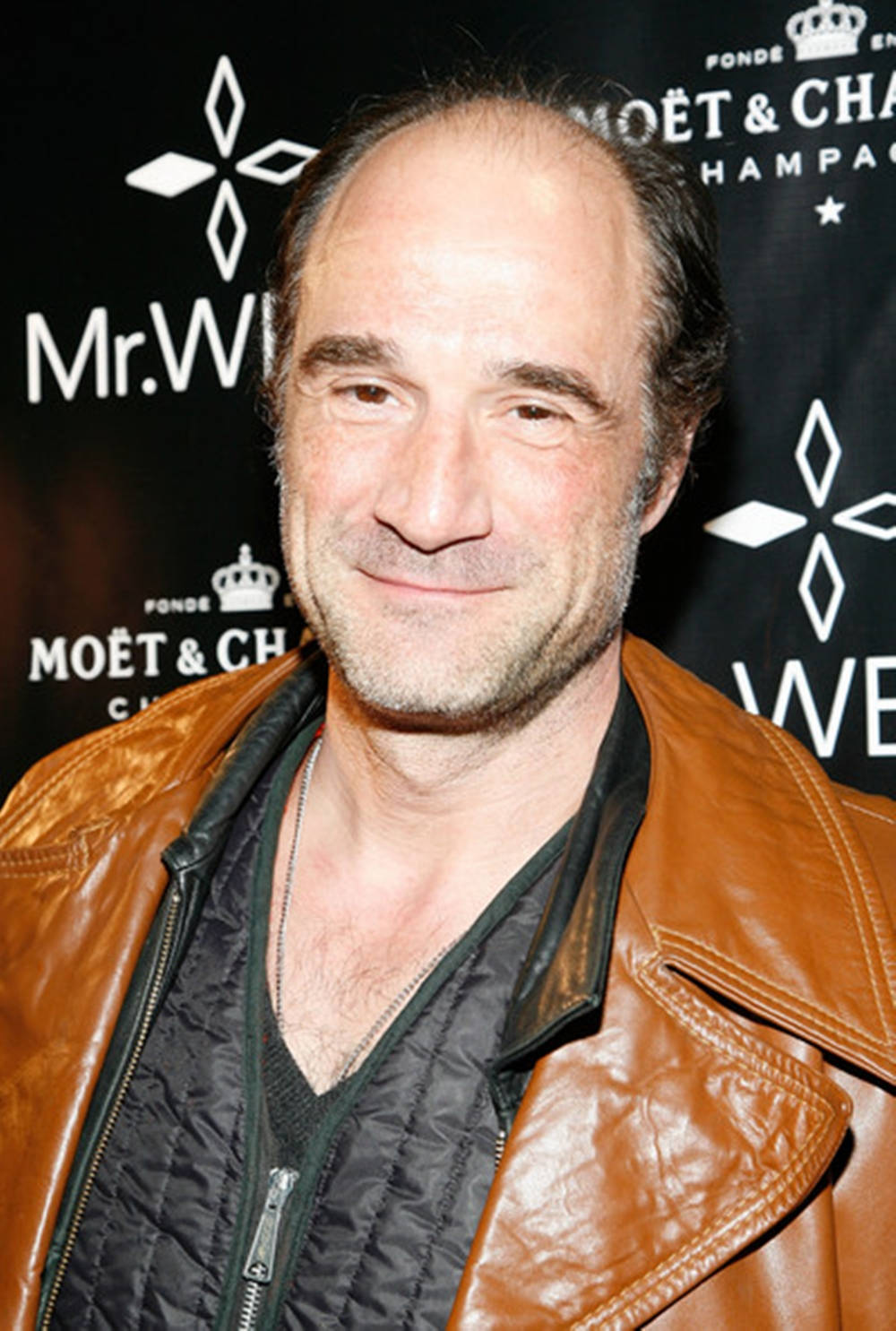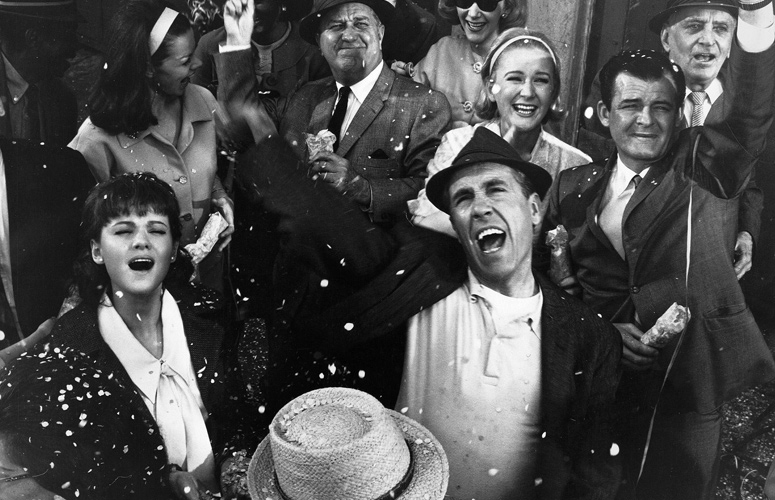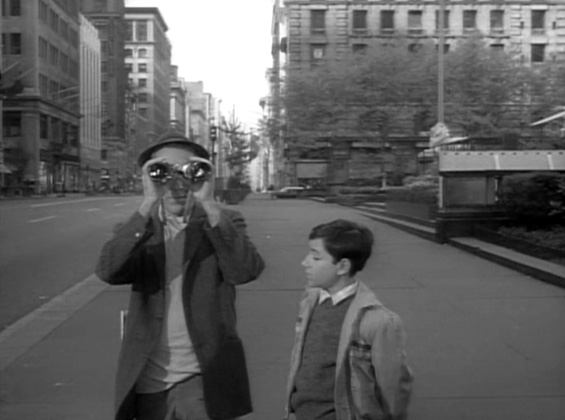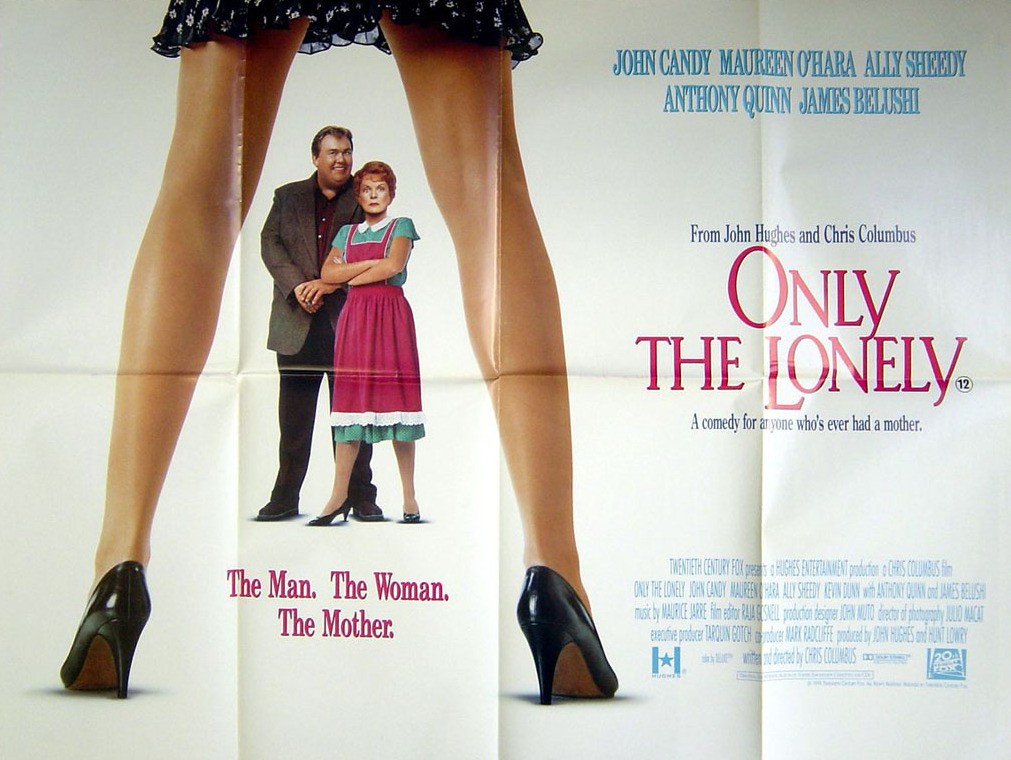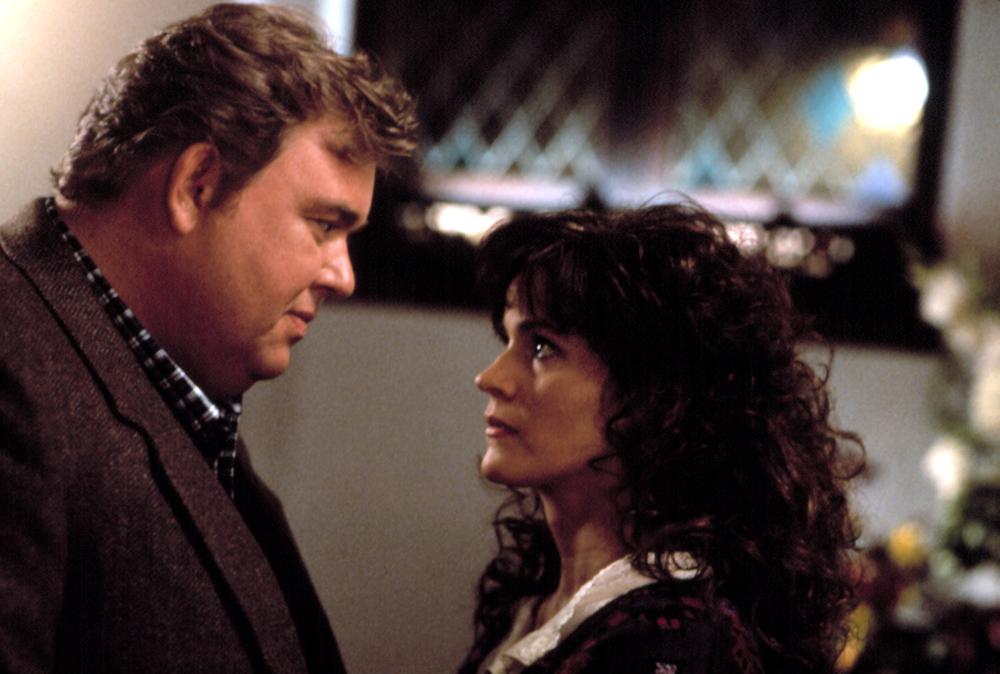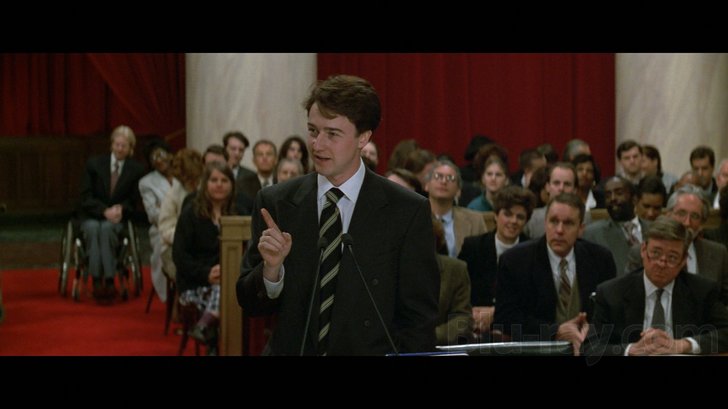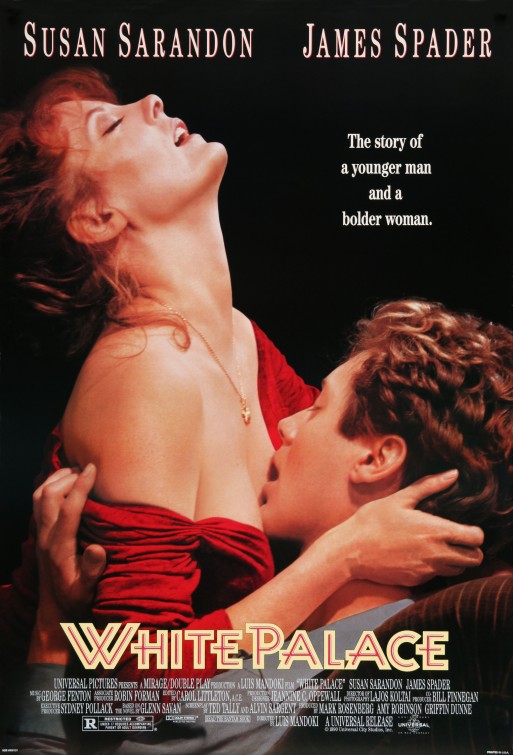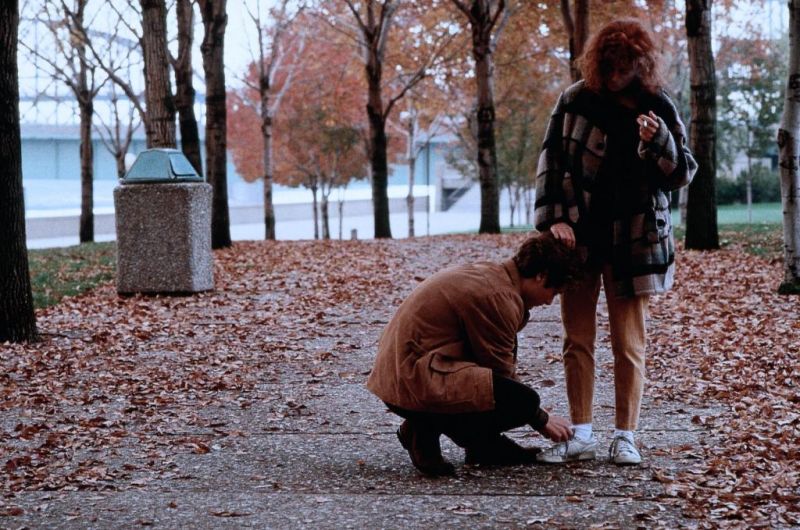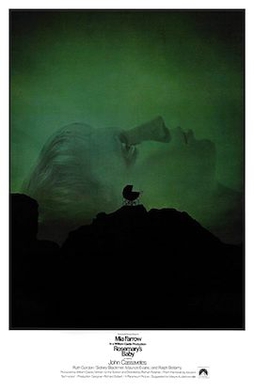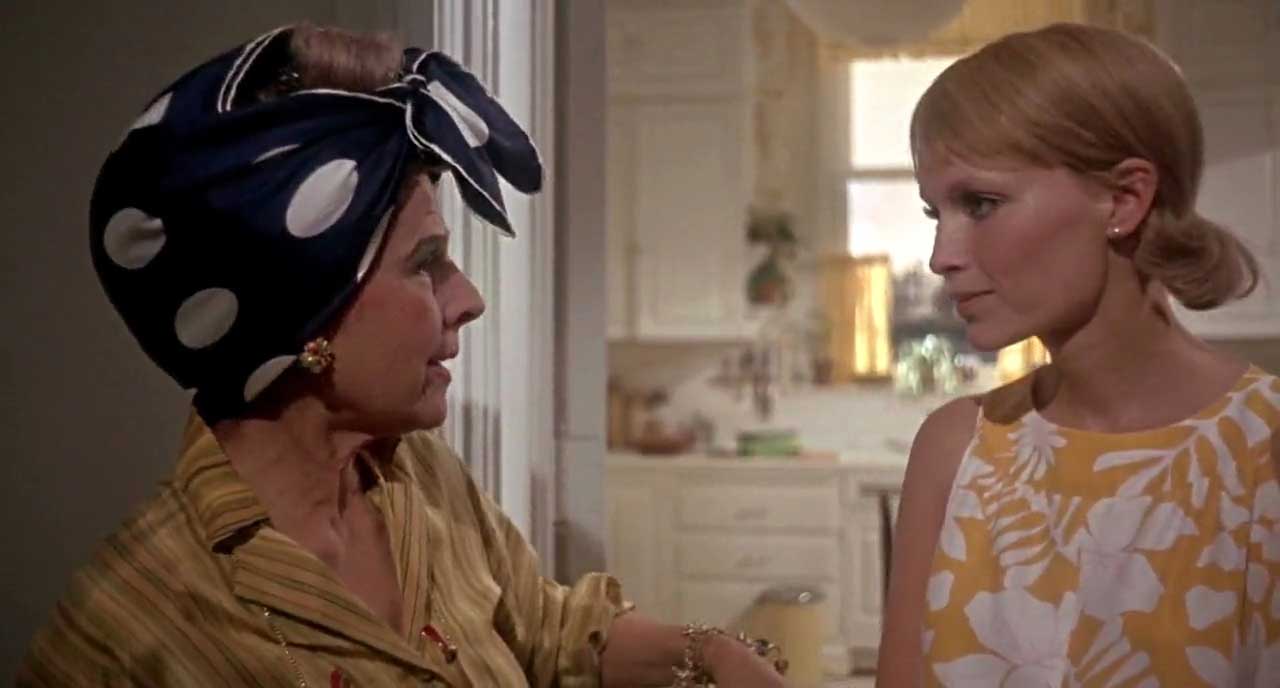VOLUNTEERS
Splash put Tom Hanks on the map and he followed it up with 1985's Volunteers, a film with less substance and definitely had an inferior director, but proved that Tom Hanks had the ability to make obviously mediocre material seem a lot better than it really is.

Set in 1962, Hanks plays Lawrence Bourne III, a cocky Yale graduate desperate to escape a $28,0000 gambling debt by joining the Peace Corps, initially stealing his roommate's identity but when he asks his wealthy daddy (George Plimpton) for help getting out, Daddy makes sure he is officially enlisted. On the plane, Lawrence meets Tom Tuttle (the late John Candy), an architect and Beth (Rita Wilson), a sincerely but tightly wound volunteer and realizes the huge mistake he's made.

Upon arrival in Bangkok, Thailand, Lawrence learns that the corps mission is to build a bridge and it is also revealed that different military and criminal Thailand leaders want the bridge completed way ahead of schedule for various nefarious reasons and our hero finds a way to turn these crminals' agendas to his own advantage while finding time to romance Beth and save her from the clutches of an alleged Peace Corp leader named John (Tim Thomerson), who has a switblade he's named Mike.
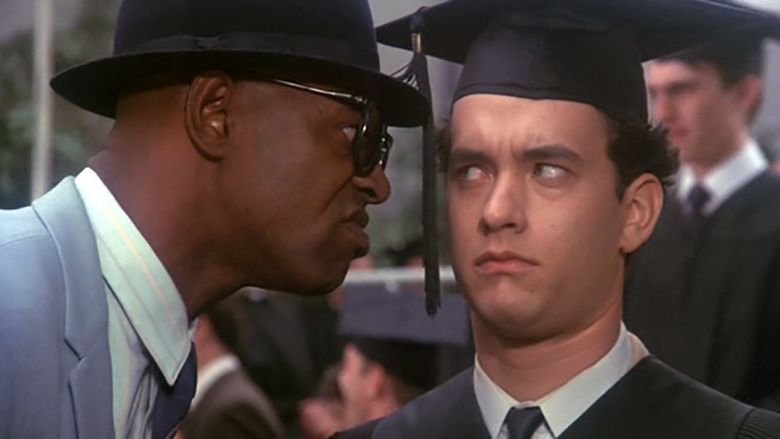
Any Tom Hanks comedy is going to provide laughs at some point and this one is no exception but there's something about this film that doesn't really work and I think what bothered me about it is that there was nothing about the film that was period appropriate. The film is allegedly set in 1962 but we only know this because Ken Levine and David Isaac's screenplays announces it. The film's opening credits are shown over some stock archival footage that shows a nice cross section of 1960's pop culture and this is the only thing about the movie that evokes the 1960's.
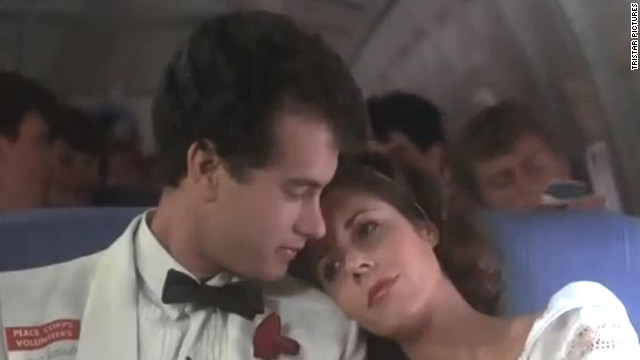
I have to confess though I was able to sort of let that go because of Hanks' uncanny ability to make me laugh and make me believe anything that he is doing onscreen. And yes, I am pretty sure that if anyone other than Hanks had been playing Lawrence Bourne III, this movie would have bored the crap out of me, but Hanks, like Robert Downey Jr., can make just about anything watchable.
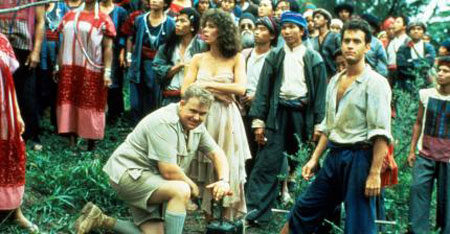
There is some lovely Thailand photography and the musical score is a little overbearing but these elements neither enhance or deter. Hanks, obviously works well with Wilson, who would later become his wife. Thomerson provides some funny moments as rhe psycho, as does Gedde Wanatambe, best known for playing Long Duck Dong in Sixteen Candles, as Lawrence's sidekick who seems a little confused about his sexual orientation. Candy, who co-tarred with Hanks in Splash is given a smart character to play for once but the character gets brainwashed and a lot of the humor the character had drains away, but with Tom Hanks center stage, it's worth a look.
Splash put Tom Hanks on the map and he followed it up with 1985's Volunteers, a film with less substance and definitely had an inferior director, but proved that Tom Hanks had the ability to make obviously mediocre material seem a lot better than it really is.

Set in 1962, Hanks plays Lawrence Bourne III, a cocky Yale graduate desperate to escape a $28,0000 gambling debt by joining the Peace Corps, initially stealing his roommate's identity but when he asks his wealthy daddy (George Plimpton) for help getting out, Daddy makes sure he is officially enlisted. On the plane, Lawrence meets Tom Tuttle (the late John Candy), an architect and Beth (Rita Wilson), a sincerely but tightly wound volunteer and realizes the huge mistake he's made.

Upon arrival in Bangkok, Thailand, Lawrence learns that the corps mission is to build a bridge and it is also revealed that different military and criminal Thailand leaders want the bridge completed way ahead of schedule for various nefarious reasons and our hero finds a way to turn these crminals' agendas to his own advantage while finding time to romance Beth and save her from the clutches of an alleged Peace Corp leader named John (Tim Thomerson), who has a switblade he's named Mike.

Any Tom Hanks comedy is going to provide laughs at some point and this one is no exception but there's something about this film that doesn't really work and I think what bothered me about it is that there was nothing about the film that was period appropriate. The film is allegedly set in 1962 but we only know this because Ken Levine and David Isaac's screenplays announces it. The film's opening credits are shown over some stock archival footage that shows a nice cross section of 1960's pop culture and this is the only thing about the movie that evokes the 1960's.

I have to confess though I was able to sort of let that go because of Hanks' uncanny ability to make me laugh and make me believe anything that he is doing onscreen. And yes, I am pretty sure that if anyone other than Hanks had been playing Lawrence Bourne III, this movie would have bored the crap out of me, but Hanks, like Robert Downey Jr., can make just about anything watchable.

There is some lovely Thailand photography and the musical score is a little overbearing but these elements neither enhance or deter. Hanks, obviously works well with Wilson, who would later become his wife. Thomerson provides some funny moments as rhe psycho, as does Gedde Wanatambe, best known for playing Long Duck Dong in Sixteen Candles, as Lawrence's sidekick who seems a little confused about his sexual orientation. Candy, who co-tarred with Hanks in Splash is given a smart character to play for once but the character gets brainwashed and a lot of the humor the character had drains away, but with Tom Hanks center stage, it's worth a look.
Last edited by Gideon58; 09-09-16 at 10:57 AM.




